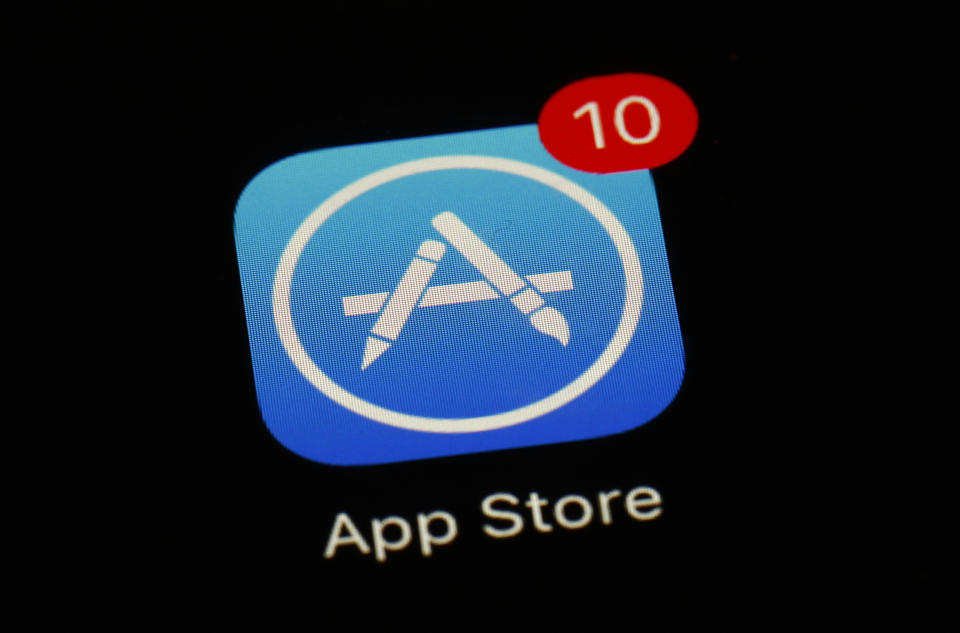Why Apple's Tim Cook had to visit China amid furor over Hong Kong-linked apps
After its App Store pulled two apps that were being used to promote Hong Kong’s ongoing protests, Apple (AAPL) is looking to make amends with China — for very good yet polarizing reasons, according to one investor.
HKmap.live, one of the apps pulled by Apple, allowed protesters to crowdsource the location of police and barricades. The second app, owned by publication Quartz, was pulled amid the publication's continued coverage of the protests.
Last week, CEO Tim Cook met with China's Chief market regulator, Xiao Yaqing, where the two spoke about “a wide range of topics such as expanding investment and business development in China, protecting consumer rights and fulfilling corporate social responsibility,” according a statement posted on the China’s State Administration for Market Regulation website.
As Hong Kong’s upheaval goes on without a resolution, acts of violence have become more frequent between police officers and demonstrators. It’s also placed major U.S. organizations like the NBA and Apple smack in the middle of politically-tinged firestorms.
John Meyer, Starship Capital’s managing partner & co-founder of Homebound, told Yahoo Finance’s YFi PM that Apple’s choice to pull these apps has been a very controversial topic.
“It's very clear that there's two different sides for this argument. One is that, Apple is backing down to China's censorship,” said Meyer, who is one of the App Store’s first 1,000 app developers. “The other is that Apple is continuing in their efforts to protect their consumers, which they've had a strong track record for.”

Much like other American multinational brands, the Chinese market is incredibly important for Apple. Of the $53 billion in net sales Apple did in the third quarter, China accounted for $9.2 billion.
The size of China’s market and the increasingly polarizing conflict in Hong Kong means Apple’s chief has a delicate balancing act to pull off, Meyer said.
Tim Cook “is trying to protect Apple's interest in China, and he's also looking out for the consumer,” Meyer stated.
“There is a little bit more of protecting the interest in China, though, because if you go to China, the sentiment is that locals are really moving away from the iPhone, in most cases. They're going to Huawei and other local Chinese brands.
By trying to appease Beijing, “Apple is trying to find any way possible to maintain their revenue in China,” Meyer told Yahoo Finance. “That's a big concern for investors [because] ... the China growth story is one of the biggest parts of Apple in 2019.”
Another brewing controversy for the iPhone maker is how it runs the App store.
Meyer broke down the process of removing specific apps from Apple’s flagship hub, telling Yahoo Finance that a number of developers have become “quite frustrated with Apple's essentially widespread power to pretty much do whatever they want as it relates to approving or rejecting apps that either get in the App Store or don't.”
However, “what makes that a complicated issue is that there's not really any alternative for an app developer if you can't go to the App Store,” he added.

And as the App Store controversy continues, Apple’s critics have raised concerns about it wielding monopoly power that makes the company “more dominant and stronger than ever,” Meyer added.
“The more younger markets, the target customer base of, let's say, 13 to 25, which is dominated by iOS,” he said. “if you're a developer making games for that audience, and you spend six months or twelve months on an app, and it just gets rejected because Apple doesn't want to put it in their store for whatever reason, what are you left to do as a developer?”
What that means is developers get left holding “a huge investment [that’s] essentially worthless,” Meyer continued.
“It is a big issue. I really actually do hope to see Apple begin to at least give the option for, more advanced users to have another third-party app store on the iPhone,” he said.
At least for now, investors don’t seem worried. Apple’s stock rallied to a new record high in Monday’s intraday trading at $240.88, giving the company a market capitalization of $1 trillion.
Chelsea Lombardo is a production assistant for Yahoo Finance. You can find more of her work here.
Read the latest financial and business news from Yahoo Finance
Follow Yahoo Finance on Twitter, Facebook, Instagram, Flipboard, SmartNews, LinkedIn,YouTube, and reddit.
